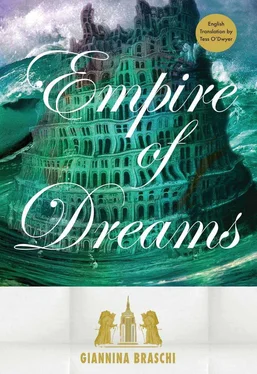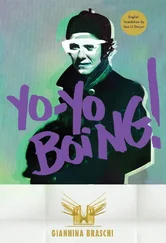I was wrong, it’s true, I made a mistake. But it’s great to be wrong. Excuse me, lady, I don’t mean to bother you, but I like to watch you walk. Excuse me, sir, I didn’t mean to interrupt, but I’d like to say: goodnight. Now I can breathe. And I’d like you to tell me why I can’t walk if I’m here, or why I couldn’t talk if I were over there. But I like being called when I’m absent and always answer: here I am. And we like to remember the road I did not tread. That means: I like to walk when I stay right here. And when we go for a walk I’ll say to myself, the day is different when it stays home. But I don’t like the one who keeps saying: come back when you say I back off. I didn’t love the one who told me: back off, but then you told me to come closer.
I know a night that always came close, and it came so close that it opened my doors. On entering I saw that it carried memories in the deepest part. Quiet on the threshold, the noise of another distant night sounded. That one could slip in because it was hot and the door was open. Even the wind snuck through the legs of that nearby night.
For a while that night and I were walking along deserted streets with no stores. Night grew weary because it knew that I never reached the end of the street. Sometimes it would look at me as if it remembered the way of another distant night. Once more the wind snuck through my legs. We got lost in the city of the wind. But another nearby night was opening in the middle of a crowd.
For now, a pair of dark glasses warns me that night has no windshield. Happiness is solitary. I know an elephant is listening to me and a raven is repeating my words from an oblique angle. Meanwhile, I divest myself of all my whims. The elephant is afraid. The raven said so when we returned from another dream.
Then a hat said that it can’t resist the wind because it’s awake. A window opened its pane at the end of the day, and a drop of dew insisted that spring was on its way. But spring replays the same song. Not a cherry stirs behind it. Nostalgia is a fruit with the pain of distance in its pit.
There’s something so dark about night. I shut my eyes tight and dream in clarity when I look at it. Night is not that dark. It’s not the blackness. It’s something as obscure as fire. And it lifts me. When they open their eyes, night and fire know one another. But they’re not the same. And now I get up and look at you. There’s no darkness and no fire. And silence must be dark. And day will bring different fires.
Hold the arrow’s circle, you used to say to me, like a hand that only has five fingers. I got it, I answered. The arrow crossing the horizon is drinking the dream of the gods. Don’t confuse the terms, you used to say to me. The hand that only has five fingers robbed me of the enigma.
I already told you I’m not rushing, I’m waiting. I know I’m not rushing because I’m not thinking about night when I’m walking. I’m walking as if the day were eternal. That’s how it is. If it weren’t so there would be less roads. But you can’t tell what is less when you’re waiting for a night that never comes. There you have it, you say, just what you were expecting. No, that’s not it, I say. I say what I was thinking when I was walking. Now I can’t go back. Getting there is not the same as having waited. It’s not the same as night, but it has the same slow pace as exhaustion. The door loses its support. It lost the way of hope just like me. I told you I can’t return when the road has four letters: STOP.
From two slow roads, two fast stops, I take the wind. The body belongs to me, I take the day. I’ll never stop, the road will stop, we’ll take a quick look from two slow roads. When I plunge into thought, I walk at the foot of the wind. If I have penetrated something, it’s only to be alone with all I see. To avoid looking at it, I think of another foot. I don’t want to see day, or night, or that hat. To avoid resting, I run. Like the plane that flies and the car that stops now. A door closes and night rises. Streets are crowding solitude.
Nonetheless, solitude doesn’t span our hands or move like waves. Each wave brings a different rhythm, each morning is new. The breeze doesn’t move like a window, doesn’t think body, and doesn’t feel alone. But my solitude would like to say day and says far away and says now and thinks tomorrow inside. It knows there will no dialogue tomorrow because there will be no memory and its windows will be shut. But if I said fire, there would be no other truth than water and a forest would continue correcting the words. My water wouldn’t know how to repeat what fire said. My hand, then, would span a dialogue, yours throws back the question, and the monologue hides its word. And, nonetheless, my silence raises the question and the man doesn’t answer. A sign questions me and the word opens. There is no shore.
I’d have to wear a different heart, a new joy, a new outcome. Mystery could be assaulted without breaking its tide, I mean, without feeling anything. The stone would petrify, and even sad shyness would become daring, if it knew that a memory was watching it. Ignore this eye and that door. I don’t want you to feel it or see me. The movement of the tide is different when you look at it. The eye of the window loses its transparency if the wind shuts it. Solitude has no enigma when it stays alone. But when your heart is a party, solitude becomes crowded with memories. Ignore this eye and that door. I don’t want you to feel it or see me.
When I look at the road I always find the window, and then I stop looking at it so that it will join me. And I forget. Then I suspect that nothing is there. Later I discover the floor. And they stick together. Later on they meet the eye of the sea. To join horizons, it’s enough to recognize them. Face to face without the interference of distance. So you won’t know what you saw and remember something else. The road must always divide its ups and downs. They are always two — someone has told me that water closes the circle of three. For me at least, it’s always two. Afterward, the world disappears.
I was coming back through the outcome when I found the entrance. I didn’t want to go back to the same street, so I went another way. Maybe I felt the curve is shorter when it doesn’t tell the entrance that it will come with the outcome. I don’t know, I asked the street for the unlisted address. It didn’t feel abandoned. I knew it when it folded its hand. But soon it put its finger on the return and insisted that the very first was the long way that mentioned the beginning without realizing it. What’s the use of being in the fifth dimension? I told the first of all not to mention it to the last. I promised to keep distant. I would have remembered the promise of that address. I would have sent it another way. I would have made it promise me another beginning. The prompt answer was slowing down. What’s the use of knowing the first or ignoring the next-to-last, if the next-to-last didn’t remember that the outcome would take place later? If it were any less sincere, I don’t know. It doesn’t matter and it’s not going to matter, the others told me. You still don’t know the way? I can only send you to another one. But I don’t know, I really don’t know. Ask the sidewalks, that’s what they’re for, let them go with you. The car would probably fight it. But, at least, the sidewalk put up a fence and divided the paths.
Now that the paths diverge, I’d like to measure the distance. It’s not the distance of the foot when it meets the hand, nor the silence of the head or the death of the heart. How many friends are there? How many can count on the measure of silence? If they encounter death in the middle of the night, they greet her. That’s all. And enough. Repeat it. They greet her. I count them among the others, brothers. Don’t leave me here. I don’t want to meet the dividing line because I divided the paths and the hand went with the leg. Where is it? they asked. Where did it go? It hasn’t left. It’s sitting with the foot. And now the leg is nonexistent. The noise of the hand is nonexistent. How do you think it can walk without the hand? Here is reality. The hand touches distance. Touches it, nothing more. That’s all. And enough.
Читать дальше












